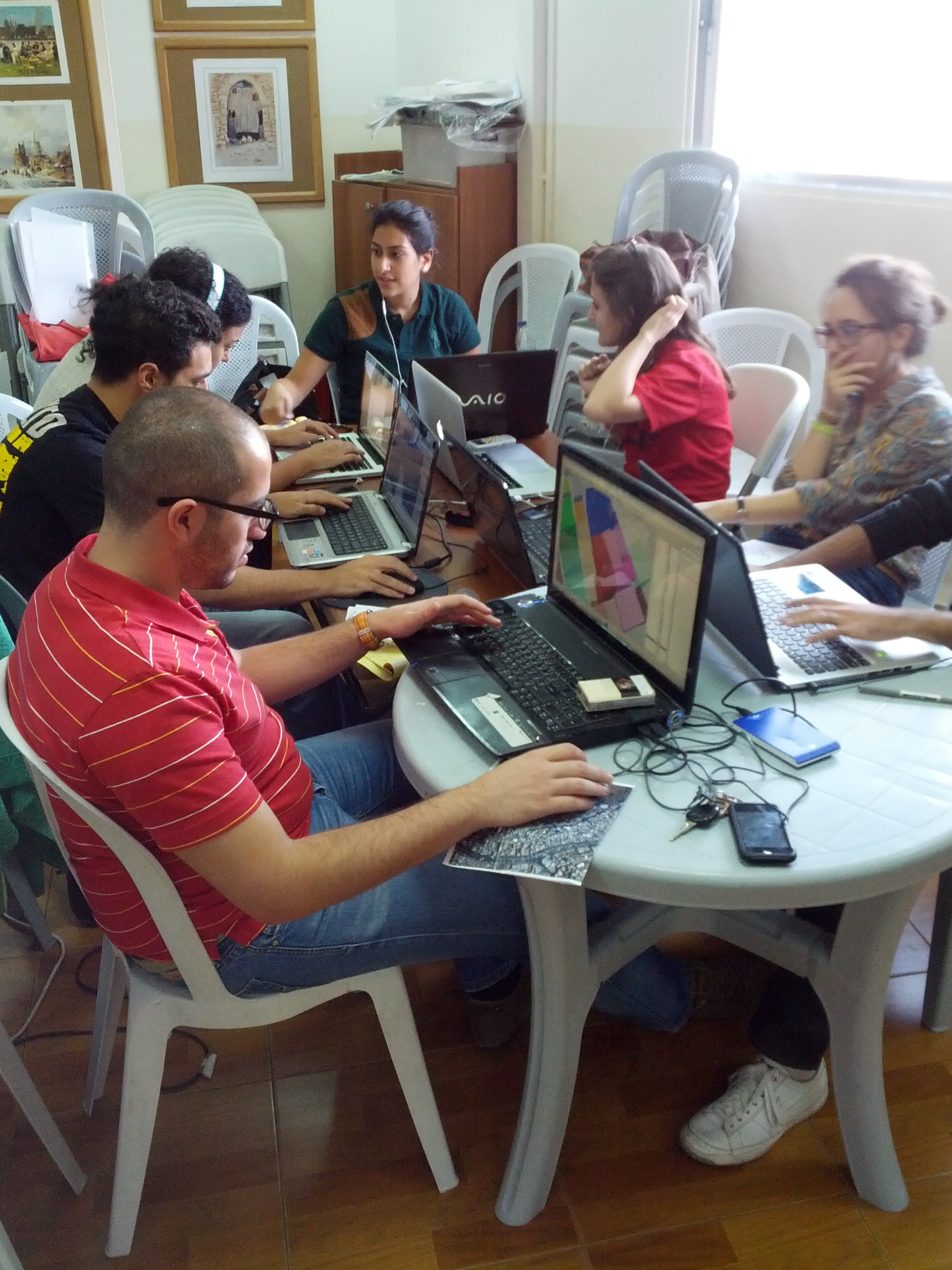
© Liyan Aljabi
Description
About Mapping Jabal Al Natheef
This project is inspired by the challenges of the accelerated increase of urban sprawls and the consequential urban segregation of contemporary Amman. The breadth of this project delves into the living conditions that this area creates and the feasible ways in which its problems can be addressed through the regeneration of its spaces. Mapping Jabal Al Natheef is the first chapter of a multi-disciplinary regeneration and uplifting project.
The Mapping Jabal Alnadeef workshop aims to pose relevant questions and provide tools that can be of use to a discussion on Jabal Alnadeef’s possible futures. In an initial phase, a selected part of Jabal Alnadeef will be mapped at the level of detailed resolution of the Rossi Map. Subsequent phases will engage and map quotidian routines, events, and environmental parameters, registering their mutual interrelationships, overlaid over the rigorous map of physical enclosure generated in phase 1.
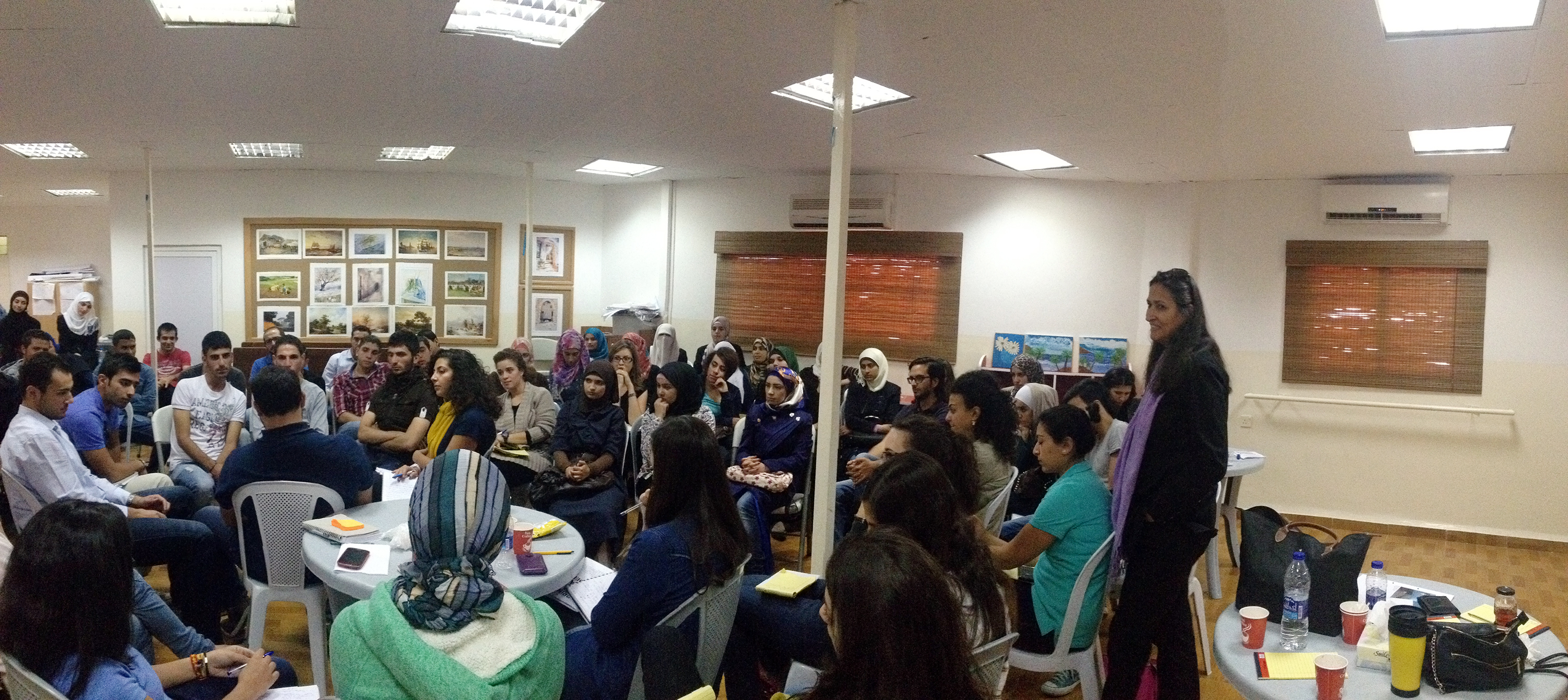
© Liyan Aljabi
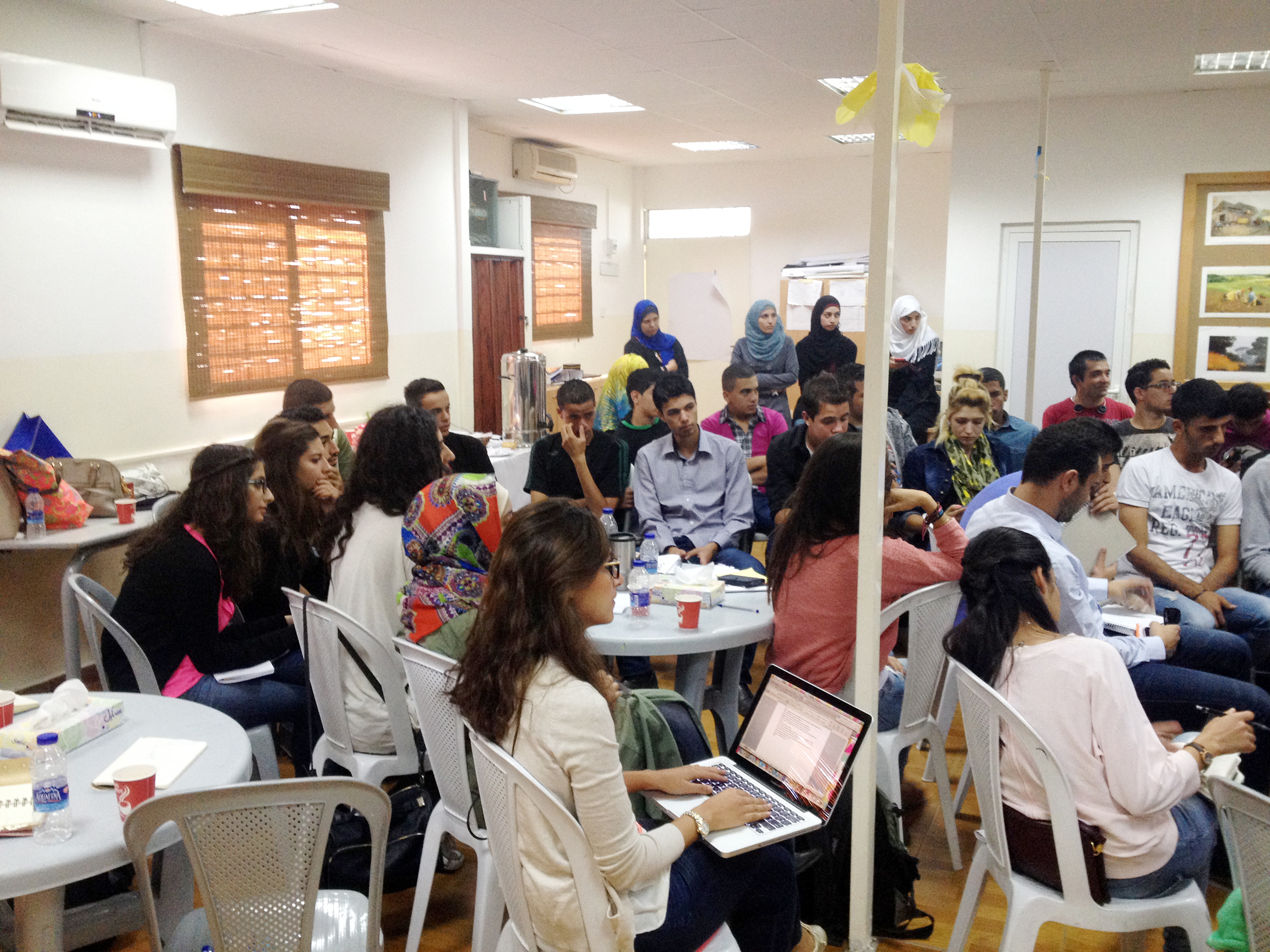
© Liyan Aljabi
Day 01 (12/10/2013)
We were overwhelmed by the participants that joined us today. Everyone gathered and got introduced. The workshop commenced by Arini giving a presentation about the project and a thorough history about Jabal Al Nathef, followed by an introduction about Christoph Lueder and Alexandru Malaescu from Kingston University, London. After that we plugged into Ruwwad’s Dardachat discussing issues like identity, place and belonging.
After the lunch break, we started a 4 hour long brainstorming session which ended in an identification of core issues and interview strategies for next day’s tour.
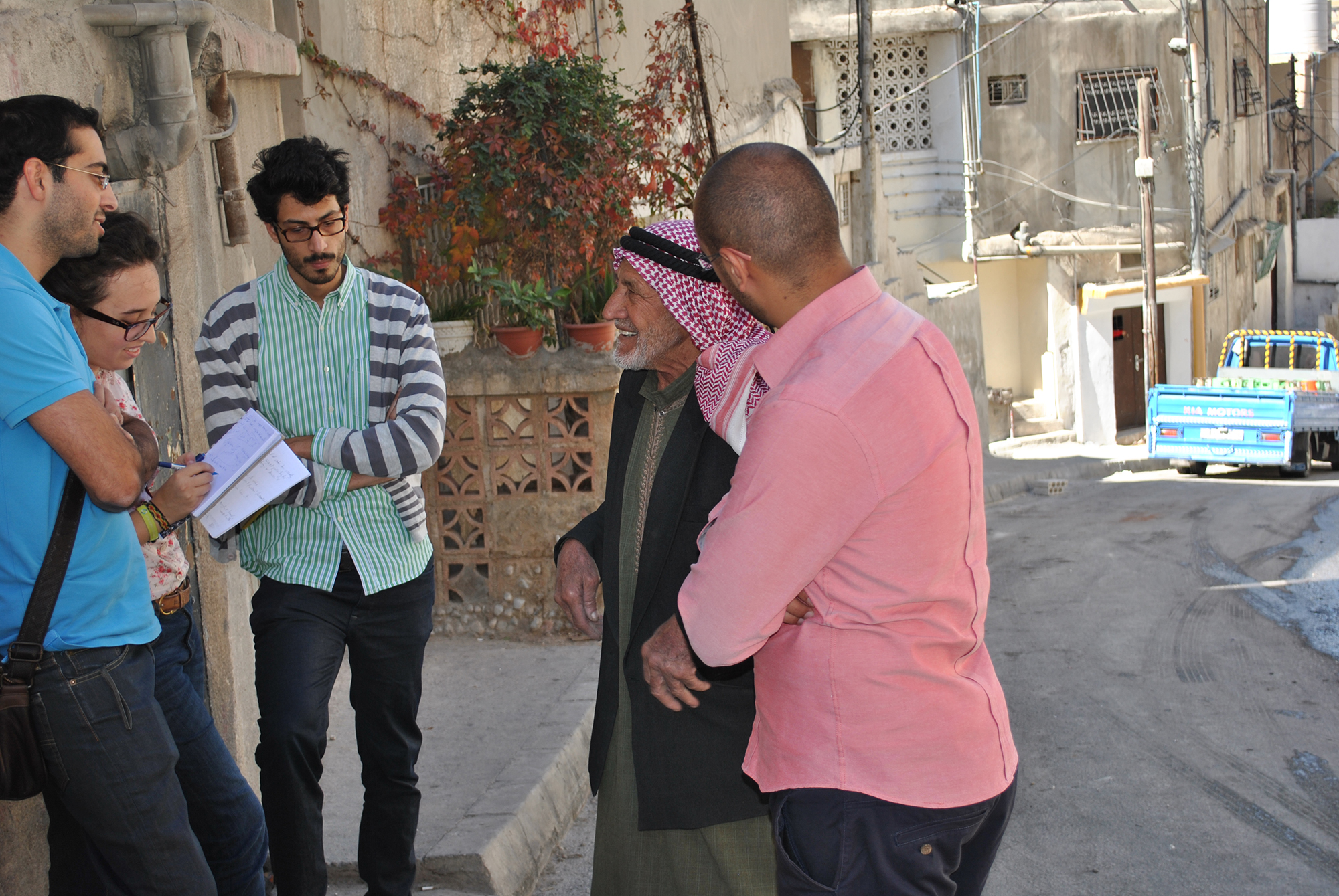
© Khalid Ali
Day 02 (13/10/2013)
9:30, everyone grouped in 5’s. Each went off with the volunteers from the camp.
The tours were prosperous with interviews, observations, photographs and sketches.
After lunch we started the second session with each group documenting and then deciding on the study area and research strategy.
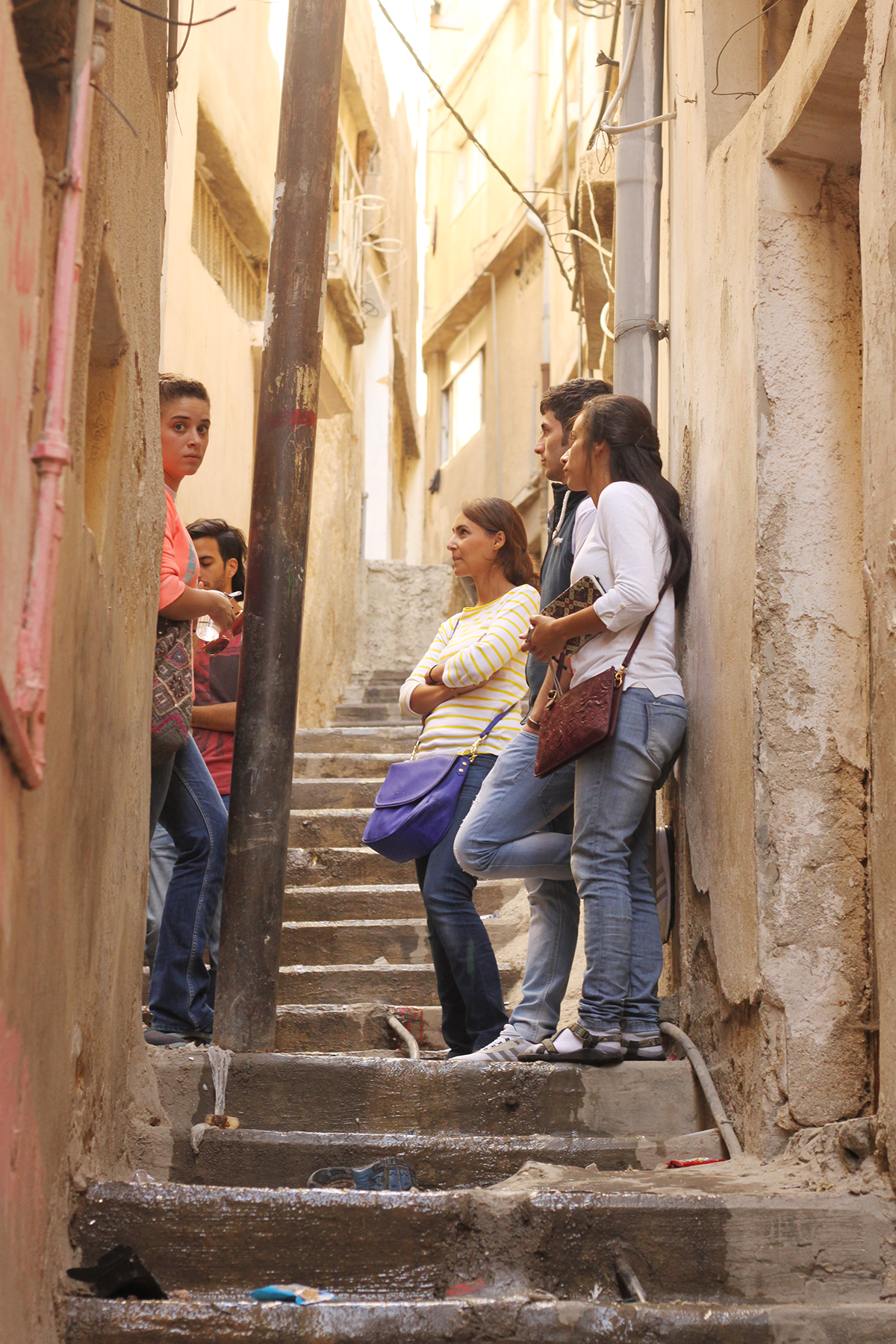
© Hadeel Ayed Mohammad
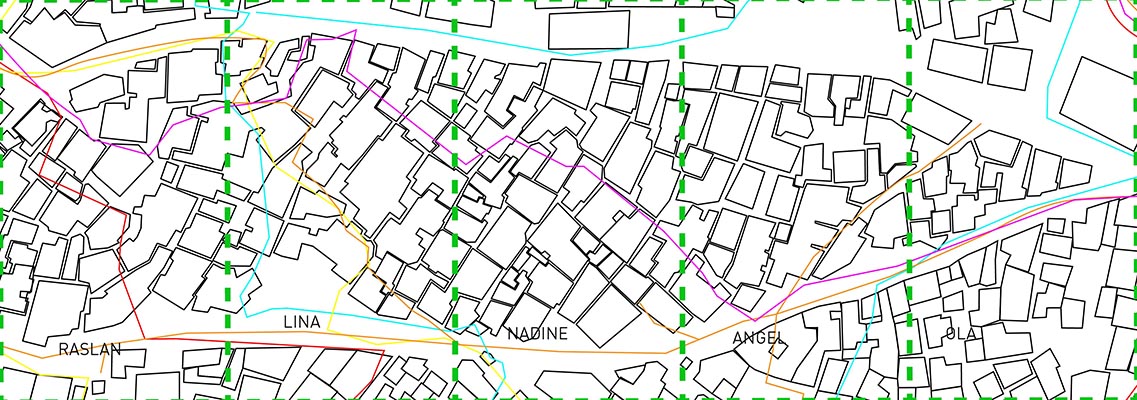
© Arini
Day 03 (14/10/2013)
Day started by determining the study area. which was based on day 02 Data collected from the site.
followed by a lecture by Arch. Uhod Kamal from GJU about Urban Indicators.
this led to determining the questions for the questionnaire that will be used in the 4th day of the workshop.
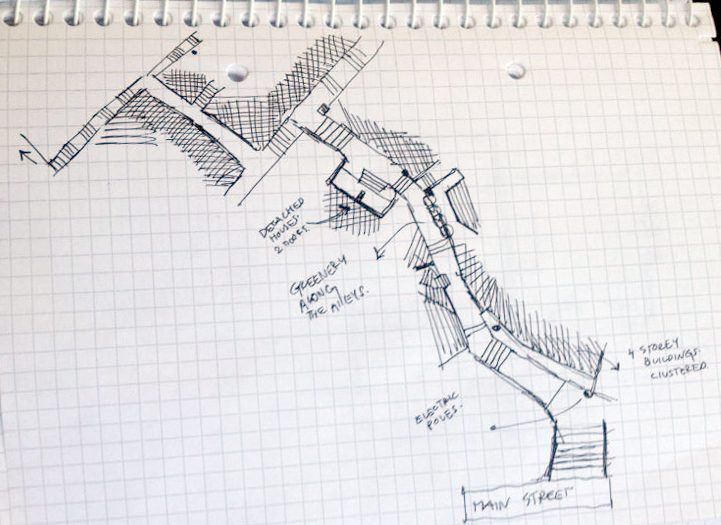
© Liyan Aljabi
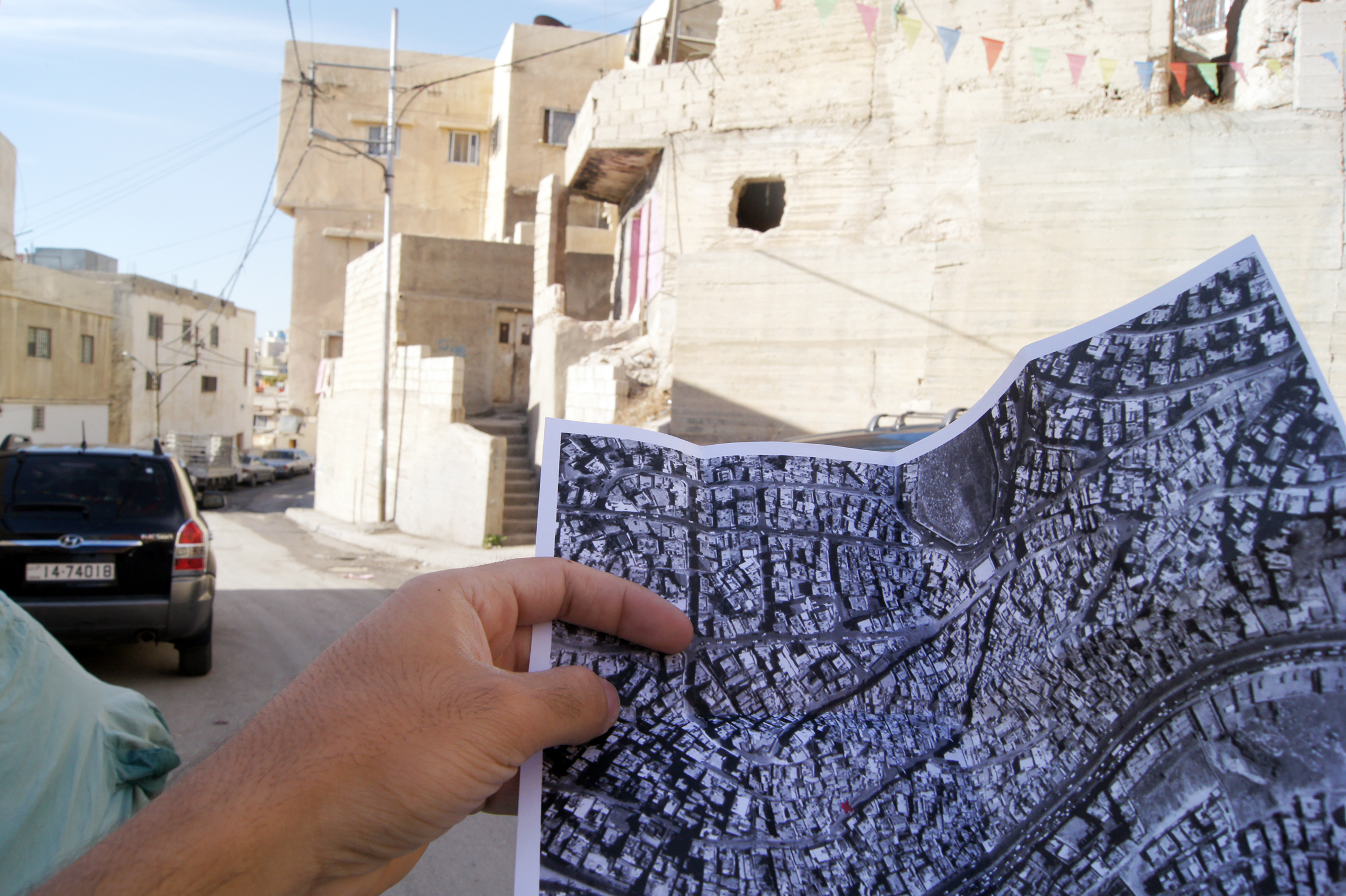
© Khalid Ali
Day 04 (16/10/2013)
Christoph introduced the concept of critical friends. which will have a conversation with the participants on our “Mapping Jabal Alnatheef” project, helping us through their expertise in specific areas to place our work in a global context.
Christian Schmid, ETH Zurich – conversation on the basis of Studio
Basel report on Havana (on reading list), total urbanization of landscape
Adrian Lahoud, Urbanism, UCL London – conversation on Tripoli, Beirut, Amman, post traumatic urbanism
Douglas Spencer, Landscape Urbanism, AA London – urbanization of landscape
Bob Brown, Plymouth University - conversation on overseas live projects
Ed Wall, University of Greenwhich - conversation on informal urbanism
Siobhan Campbell, Irish poet and researcher on stories of conflict, Kingston University - conversation on story catching and conflict
Joseph Deane, architect, London School of Architecture - on the basis of drawing he will send, narrative of movement and encounters.
After that the groups went to the site again with survey, covering a larger number of houses to get more info and documenting floor plans and stairs and entrances typologies.
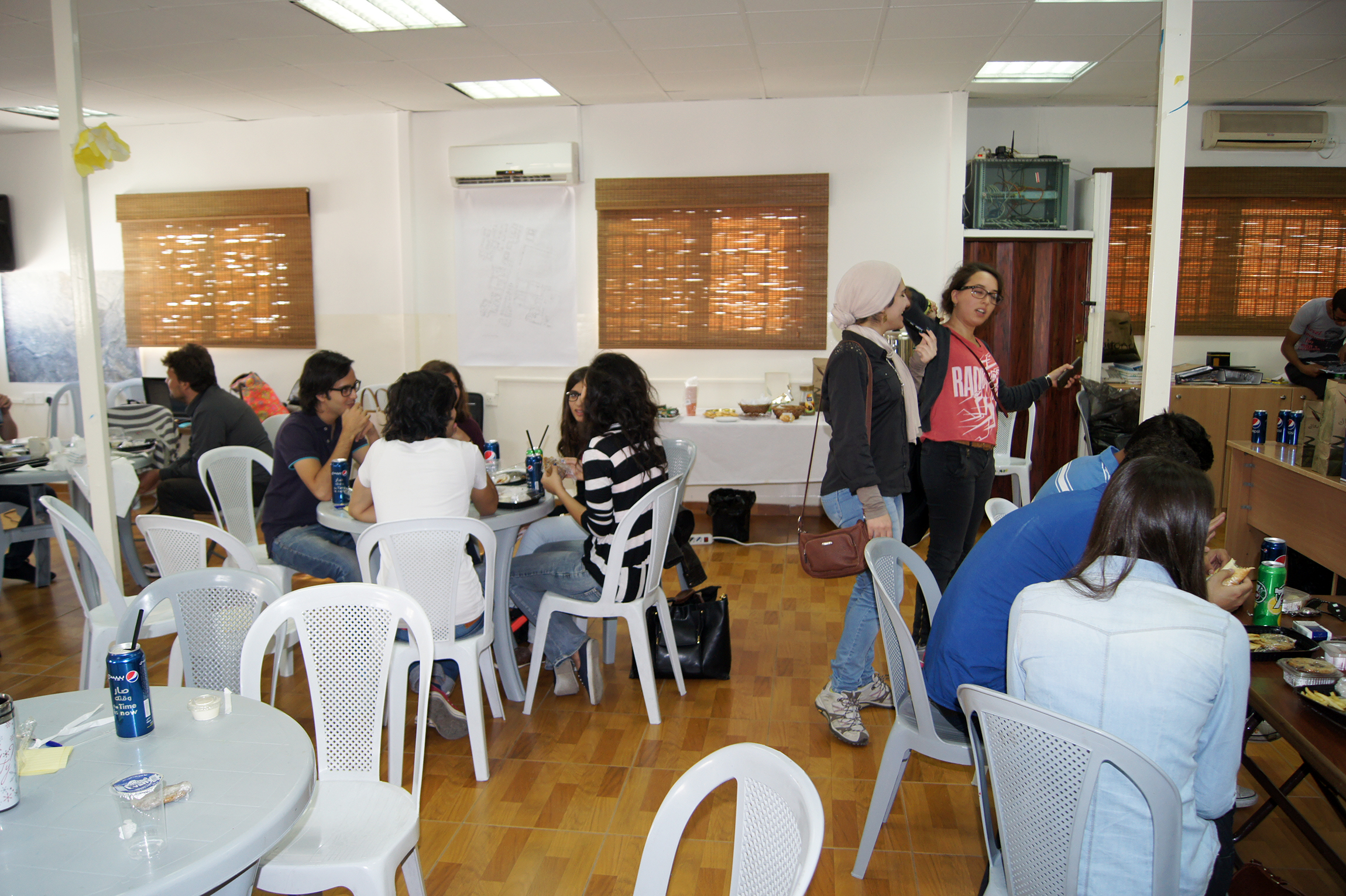
© Khalid Ali
Day 05 (17/10/2013)
The groups are working on the following.
- Site elevations.
- Rossi map for the study area.
- 3D for the stairs and the study area.
- Generating panoramas for the area from other mountains.
- Developing a theme for the critical friends.
Some of the participants stayed at the site to continue with gathering more date and documenting physical typologies, human behavior, and data related to the themes.

© Hadeel Ayed Mohammad
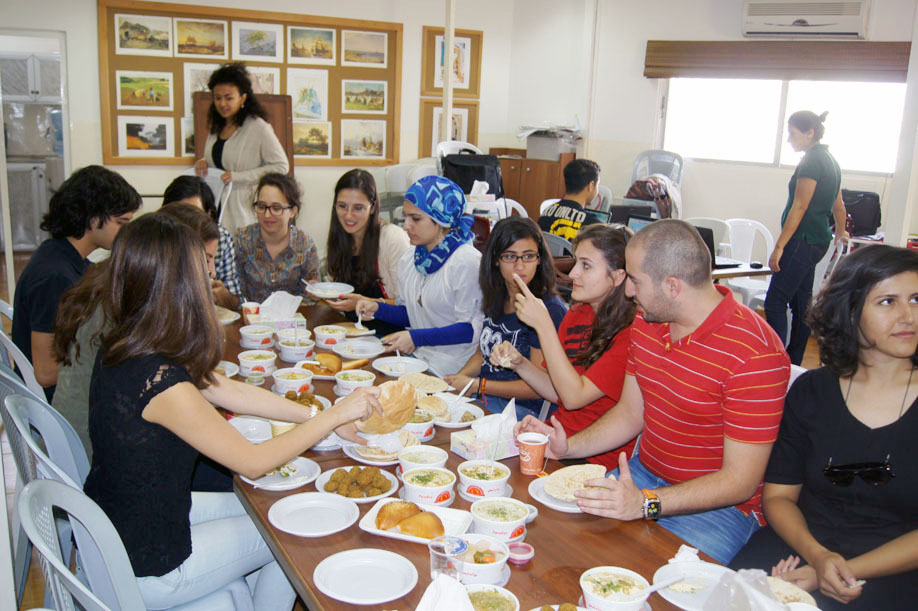
© Khalid Ali
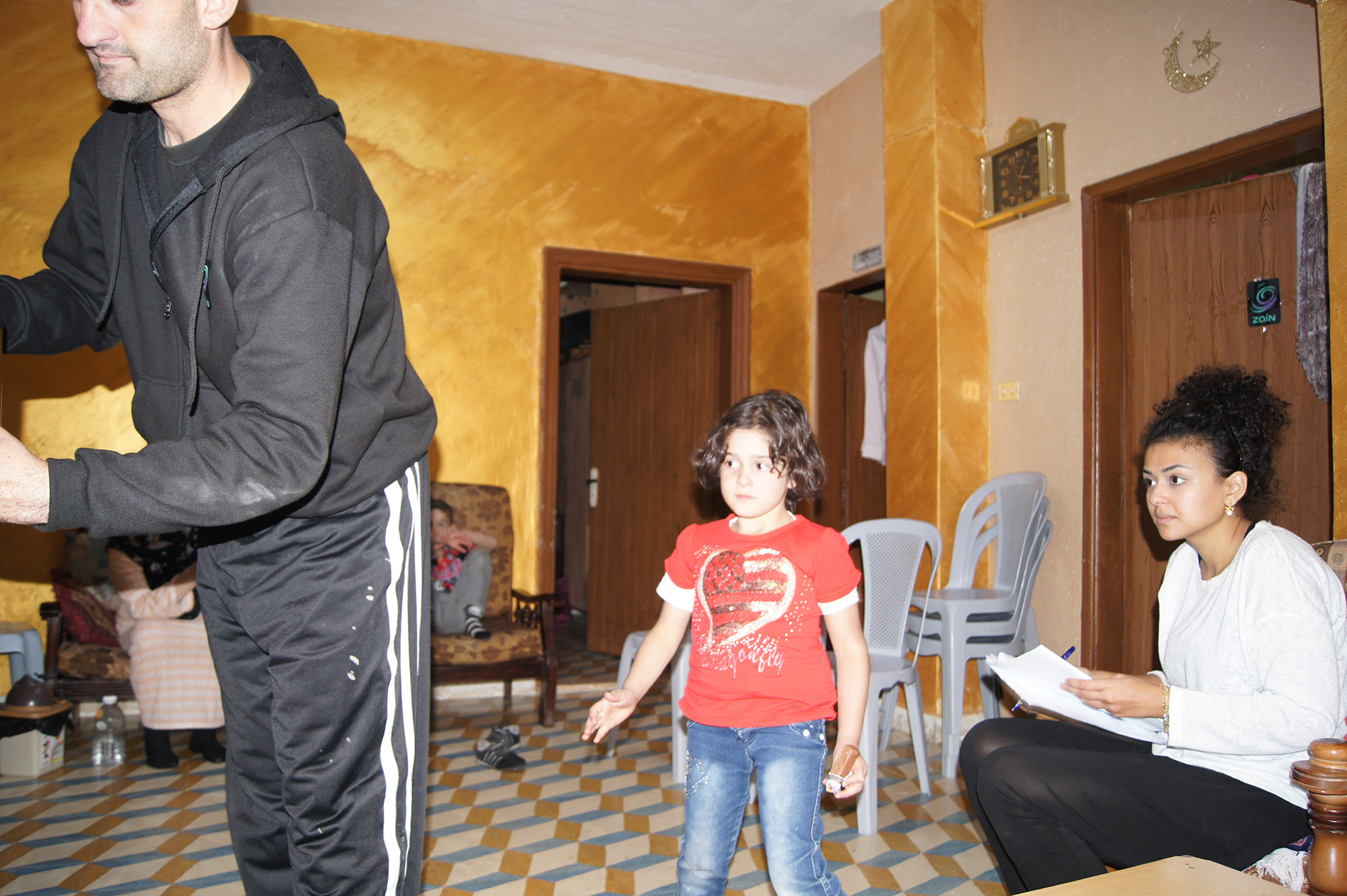
© Khalid Ali
Day 06 (18/10/2013)
Friday morning breakfasts are a great tradition in Jordan. This morning we had a glorious feast of Humus, Falafel, eggplants Mtabal and many more for our great participants who should up early for work today.
After that we head back for the site for more documentation, interviews and sketching.
In the afternoon, we had the first Skype session with Mapping Jabal Al Natheef “critical friend” Christian Schmidt to discuss social interactions on rooftops.
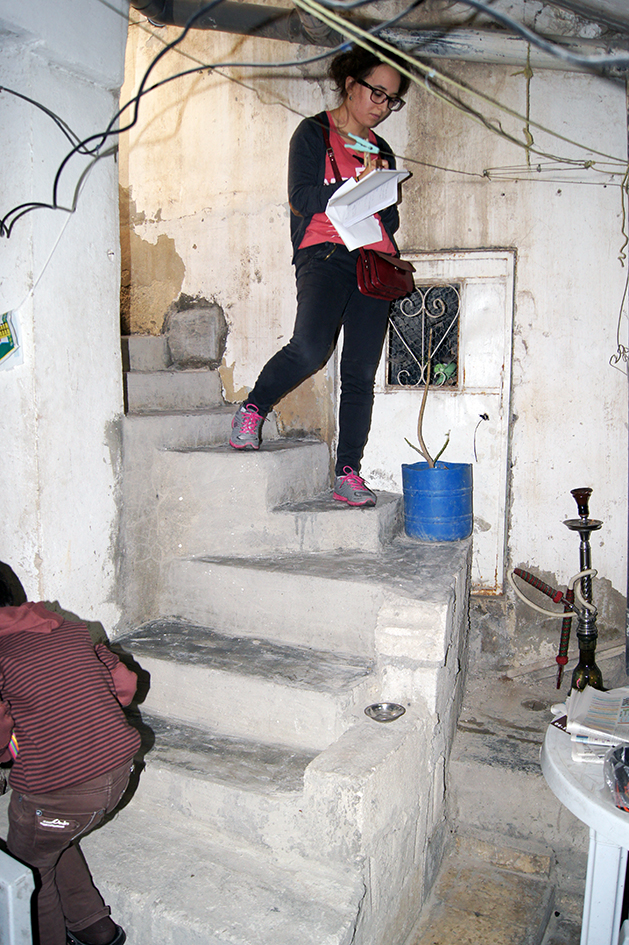
© Khalid Ali
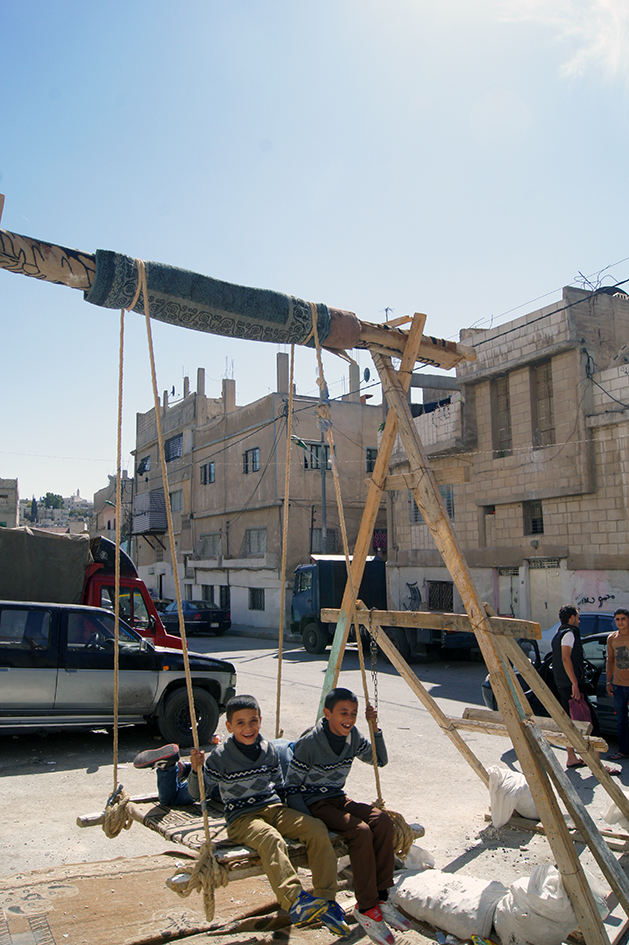
© Khalid Ali
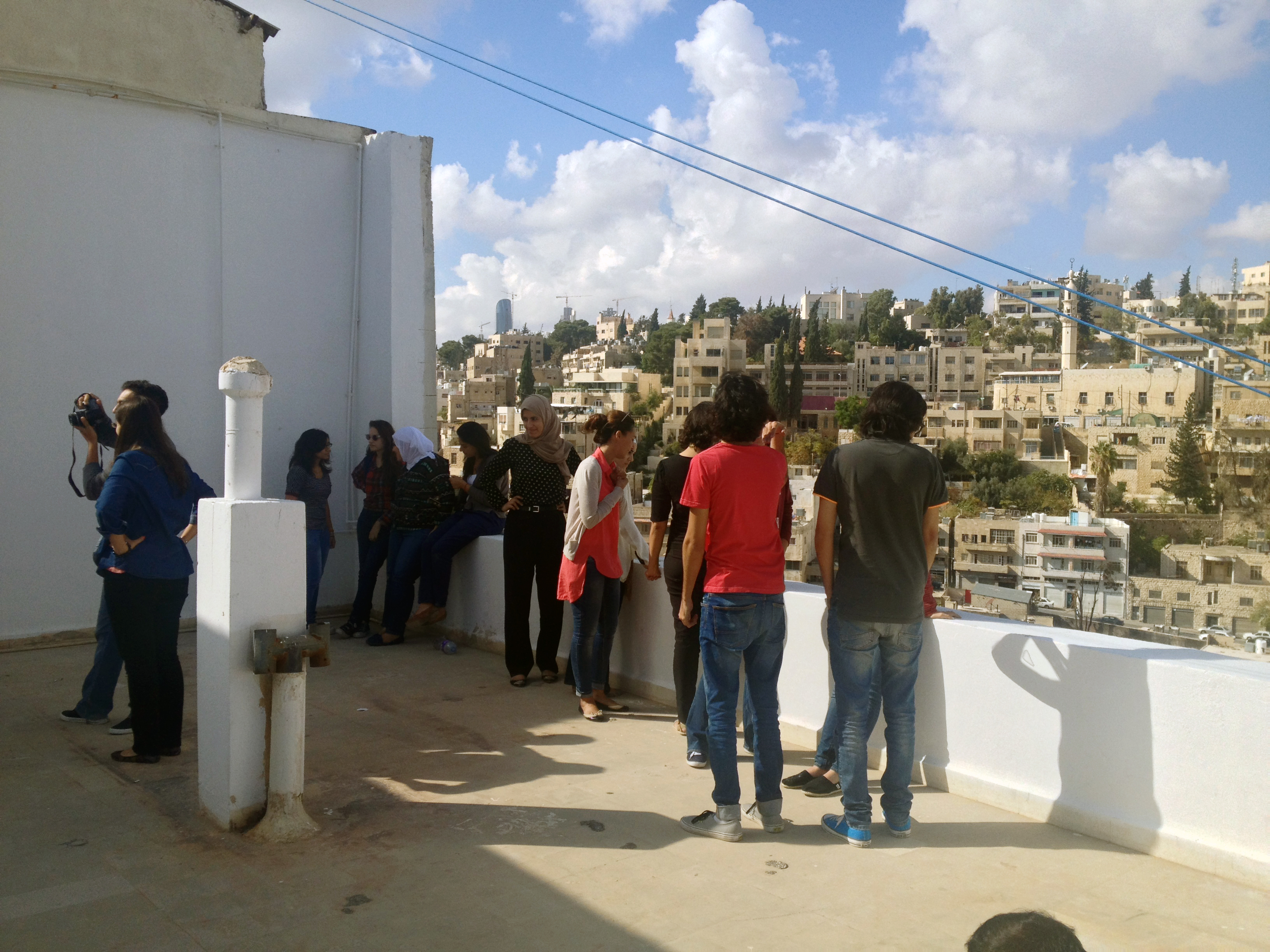
© Liyan Aljabi
Day 07 (19/10/2013)
Today’s session was at Darat Othman Budair - The School of Architecture and Built Environment, GJU.
In the amazing settings of Al Darah, students started the production and conclusions phase. Photos, videos, plans, diagrams and renderings have started compiling up.
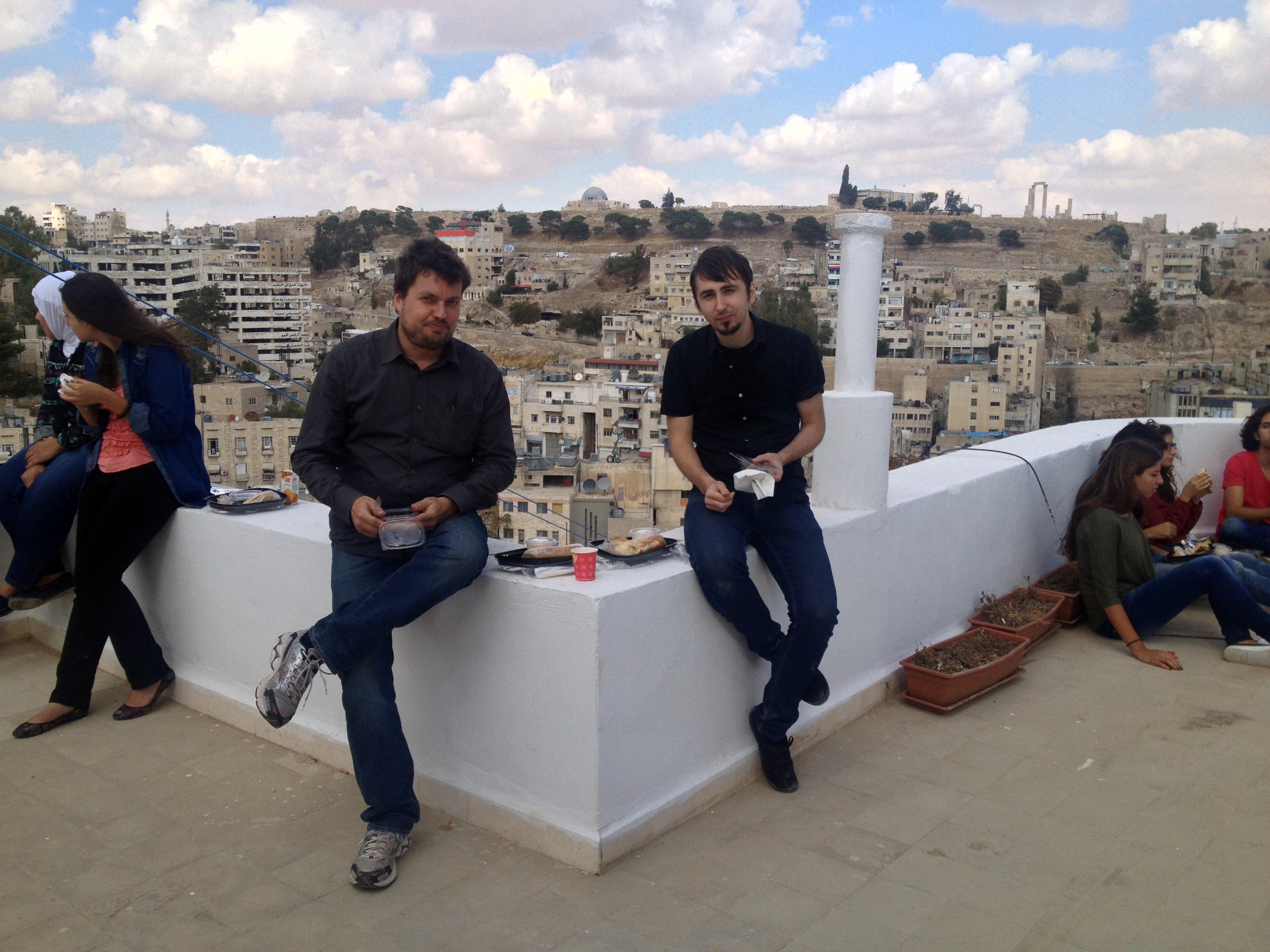
© Liyan Aljabi

© Liyan Aljabi
Day 08 (20/10/2013)
Samar Dudin – Regional Director of Ruwwad – came in today for another discussion with the participants to hear their thoughts and feedback about Jabal Al Natheef.
Participants talked about the deteriorating physical layer in the camp area and the poor infra structure. The participants shared funny and gloomy storied about their interactions with the residents. We discussed what our next move “physical intervention” i and all the obstacles we might face.
One of the conclusions was that the physical layer is the background of all the social problems and conflicts of the Camp. We have to address the social intangible layer to reach a solid intervention in the physical aspect.
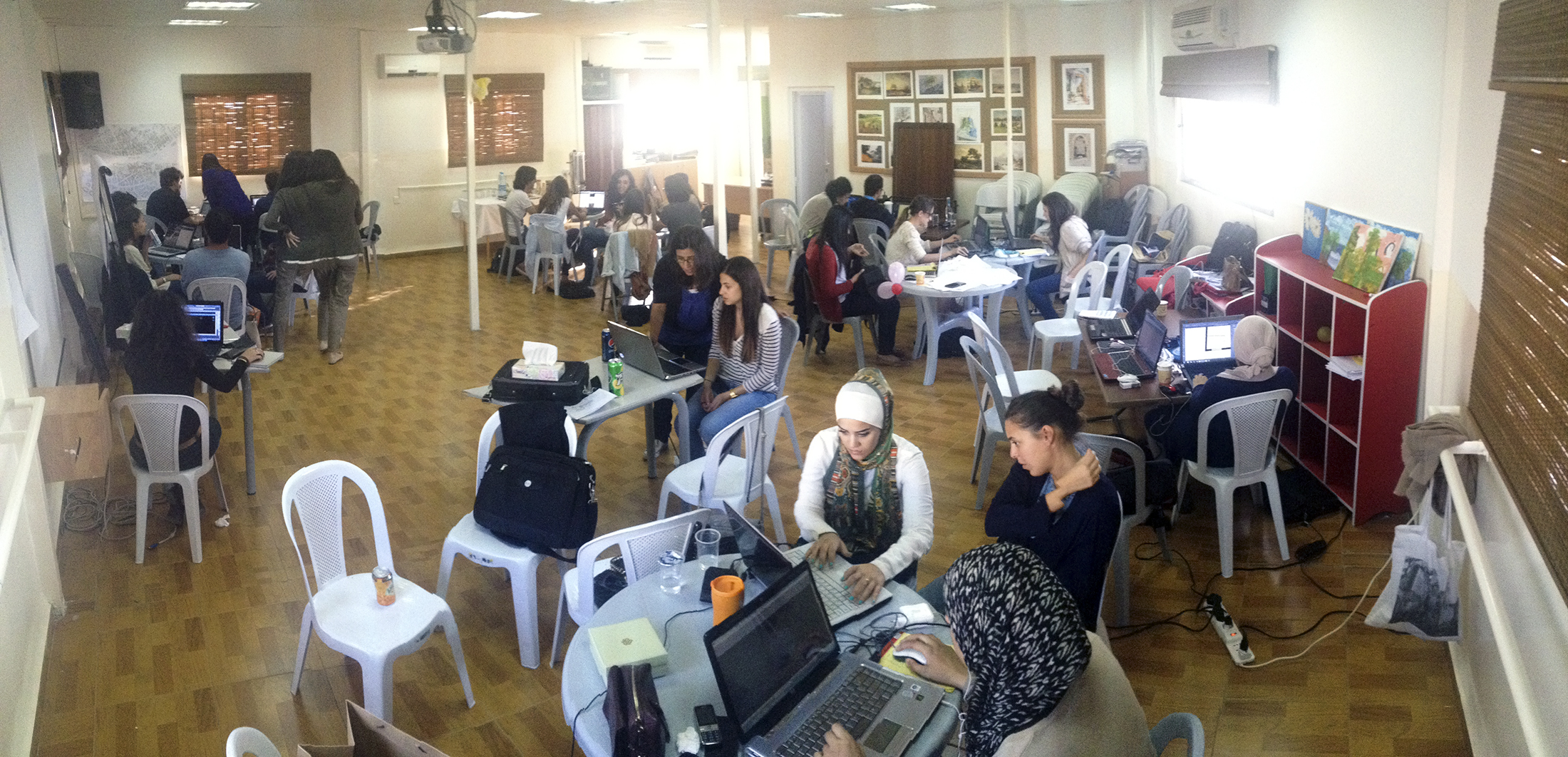
© Liyan Aljabi
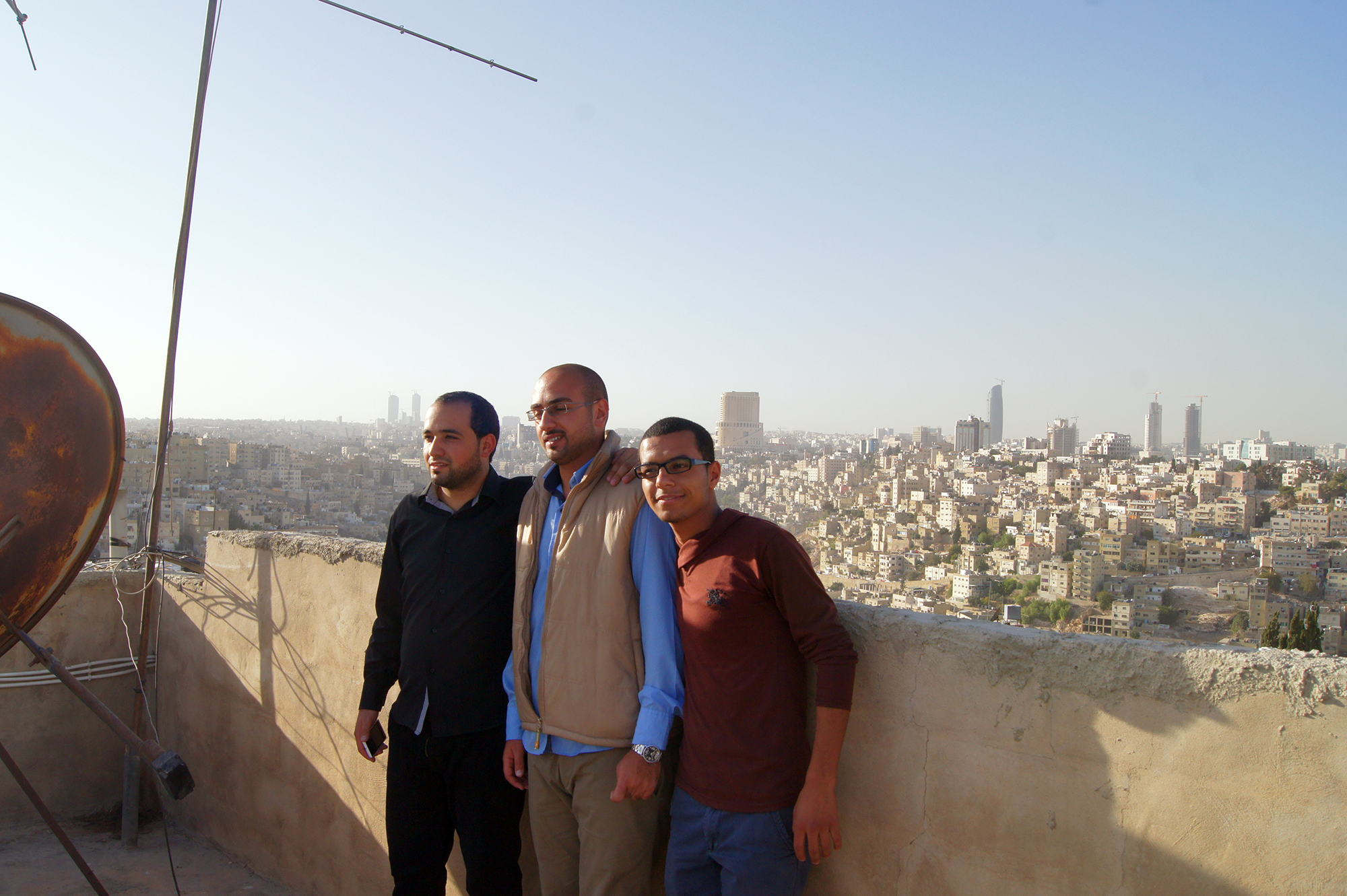
© Khalid Ali
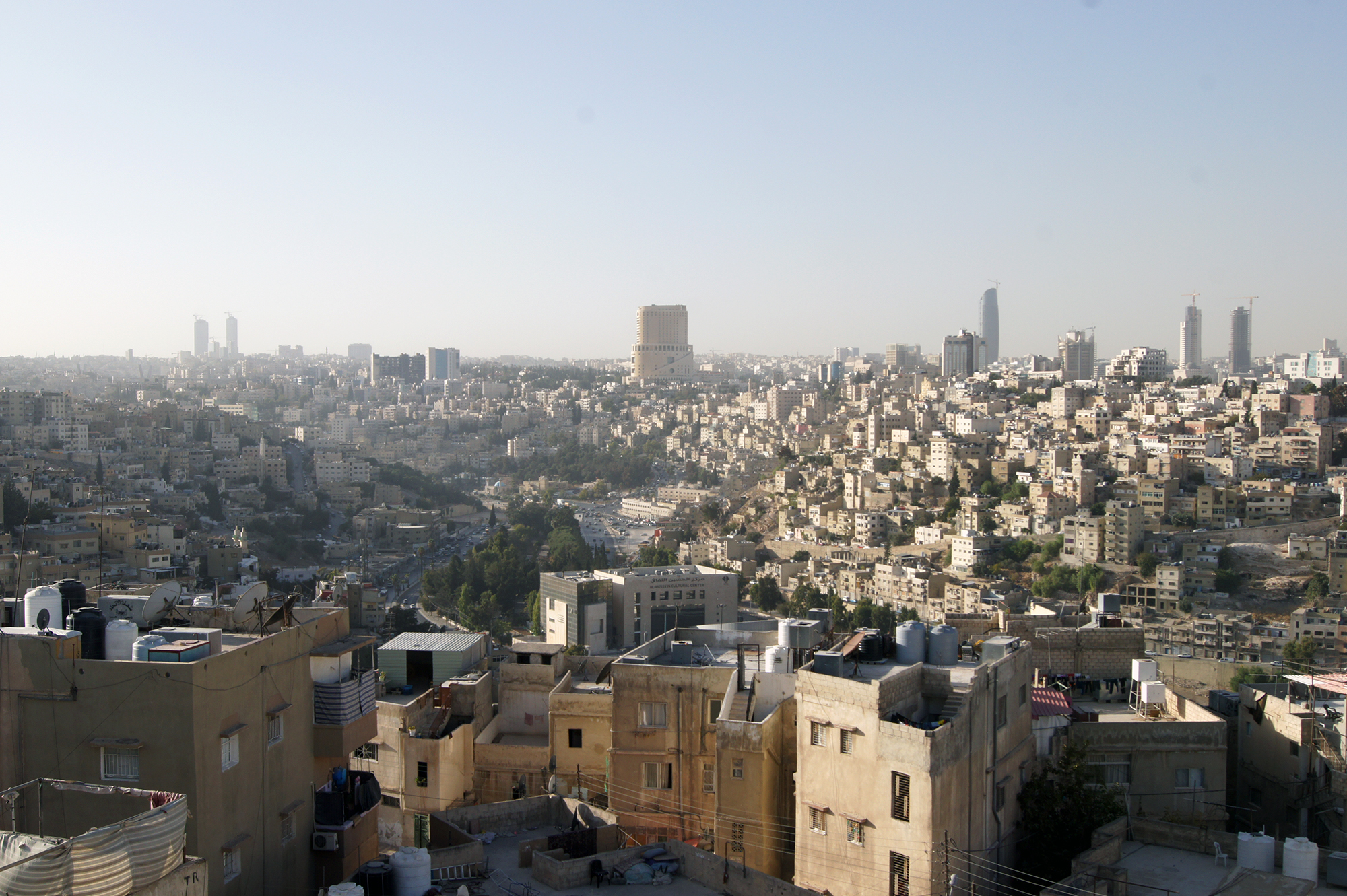
© Khalid Ali
Day 09 (21/10/2013)
One day left for us to finalize and wrap up all the work we did. We have a lot of data to process. The workshop outcome was more than amazing and overwhelming.
At the end of the day Abdulla Barghothi from Ruwwad, took the groups to the highest roof top in Jabal Al Natheef with captivating 360 degrees view of Amman Mountains.
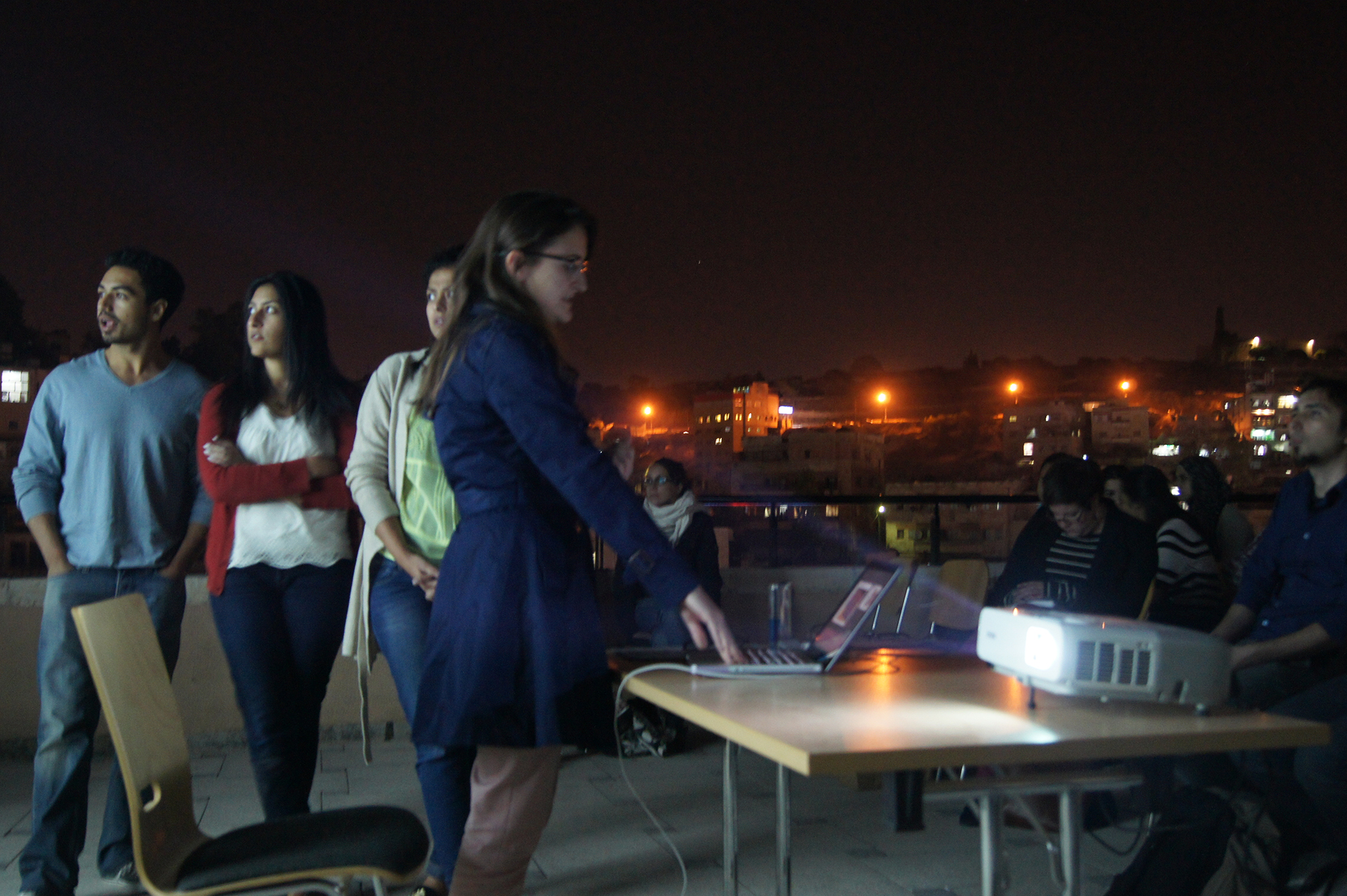
© Liyan Aljabi
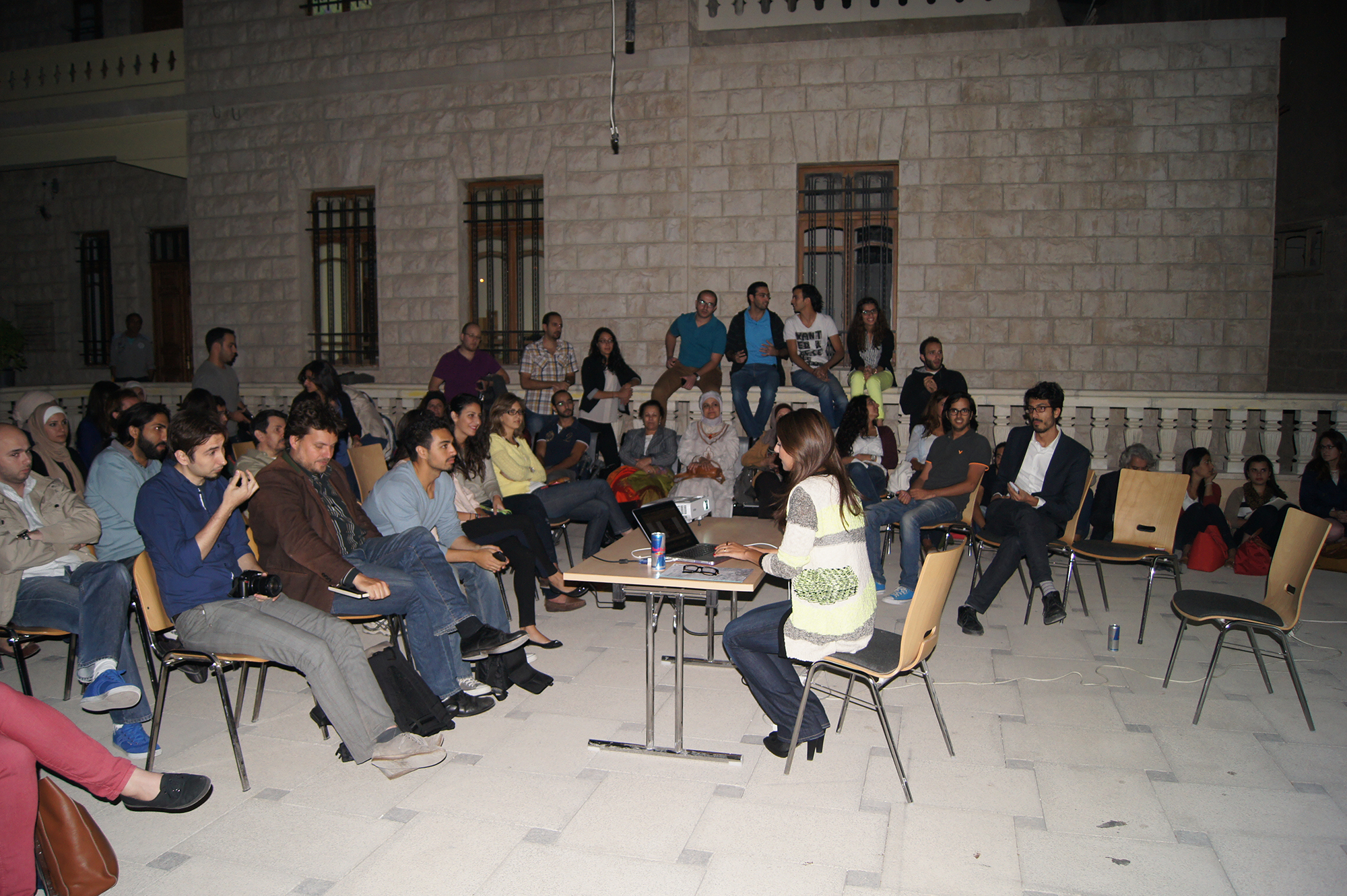
© Liyan Aljabi
Day 10 (22/10/2013)
Today is the final day in Mapping Jabal Al Natheef. In the morning session the participants worked on the presentation and conclusions for the closing event.
This project was made possible by the super awesome 29 participants from multi-disciplinary backgrounds we had on board.
The closing even for Mapping Jabal Al Natheef was an amazing night to conclude Phase 01.
This project was made possible by the brilliant 29 participants from multidisciplinary backgrounds we had on board; architectsurban plannerscurators we had on board.
The workshop tutors: Christophe louder, Ohud Kamal and Alexandru Malaescu
Jabal Al Natheef residents who had been more than welcoming and generous by letting us inside their homes and sharing with us their stories.
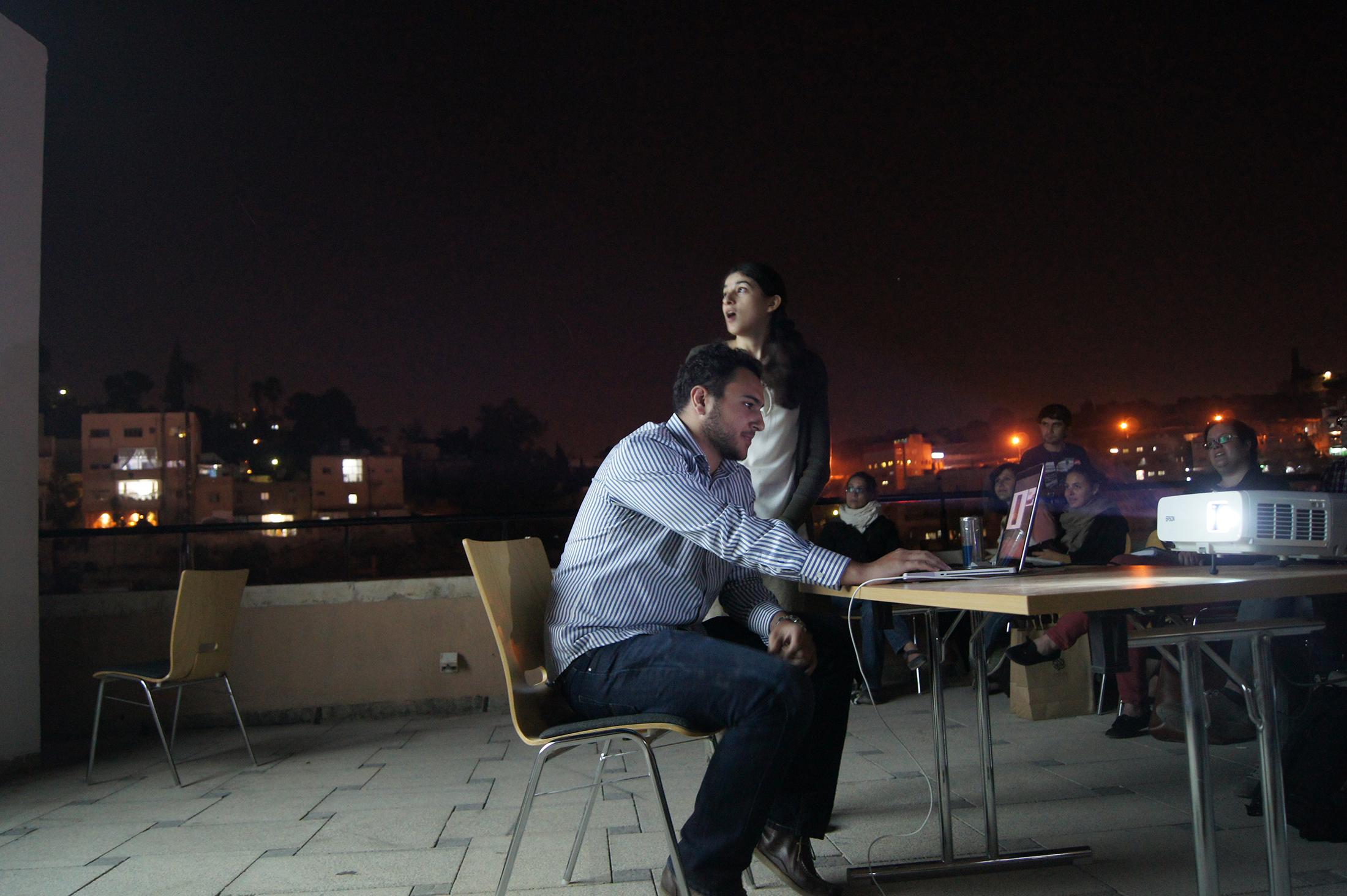
© Liyan Aljabi
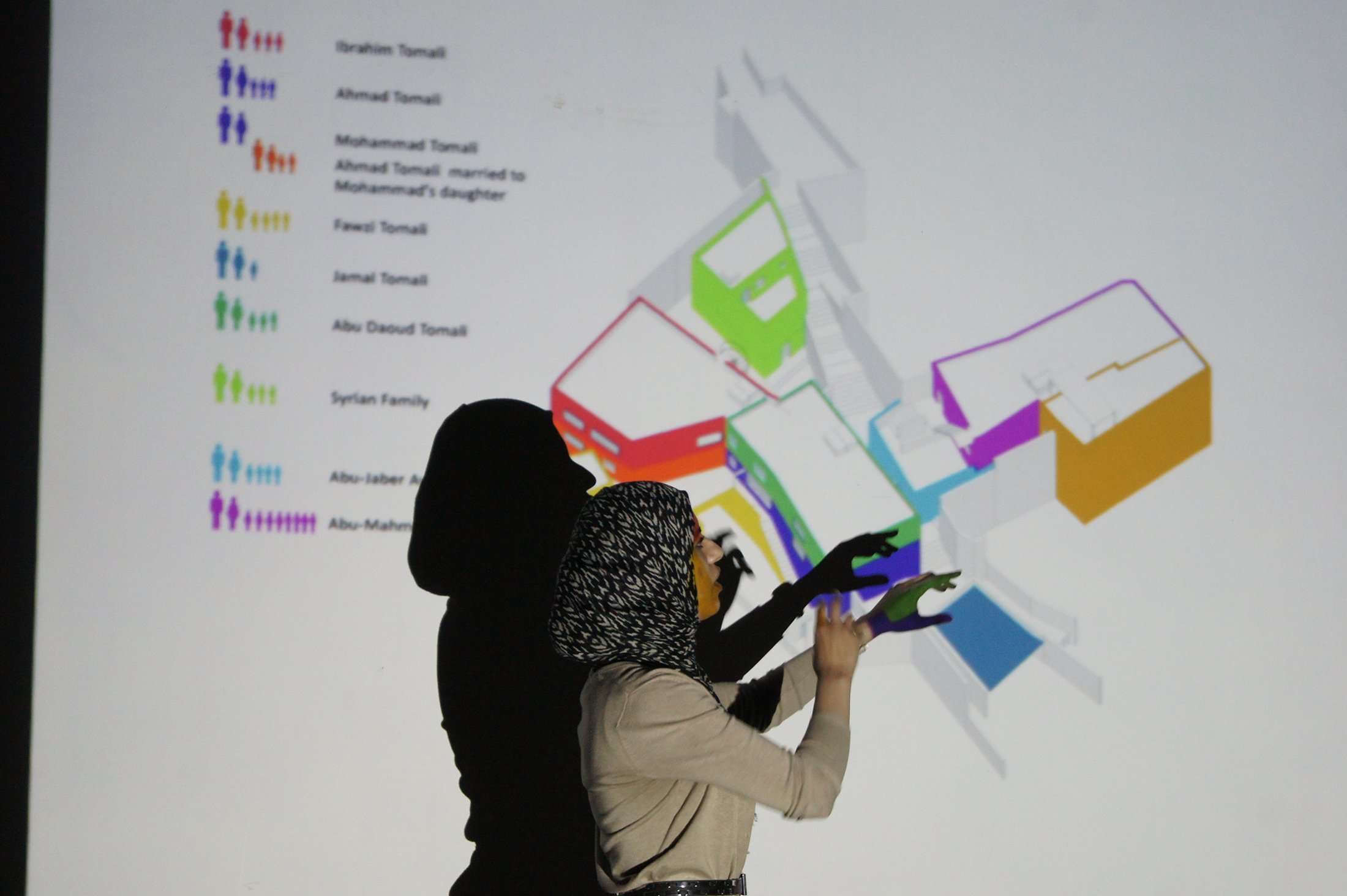
© Liyan Aljabi
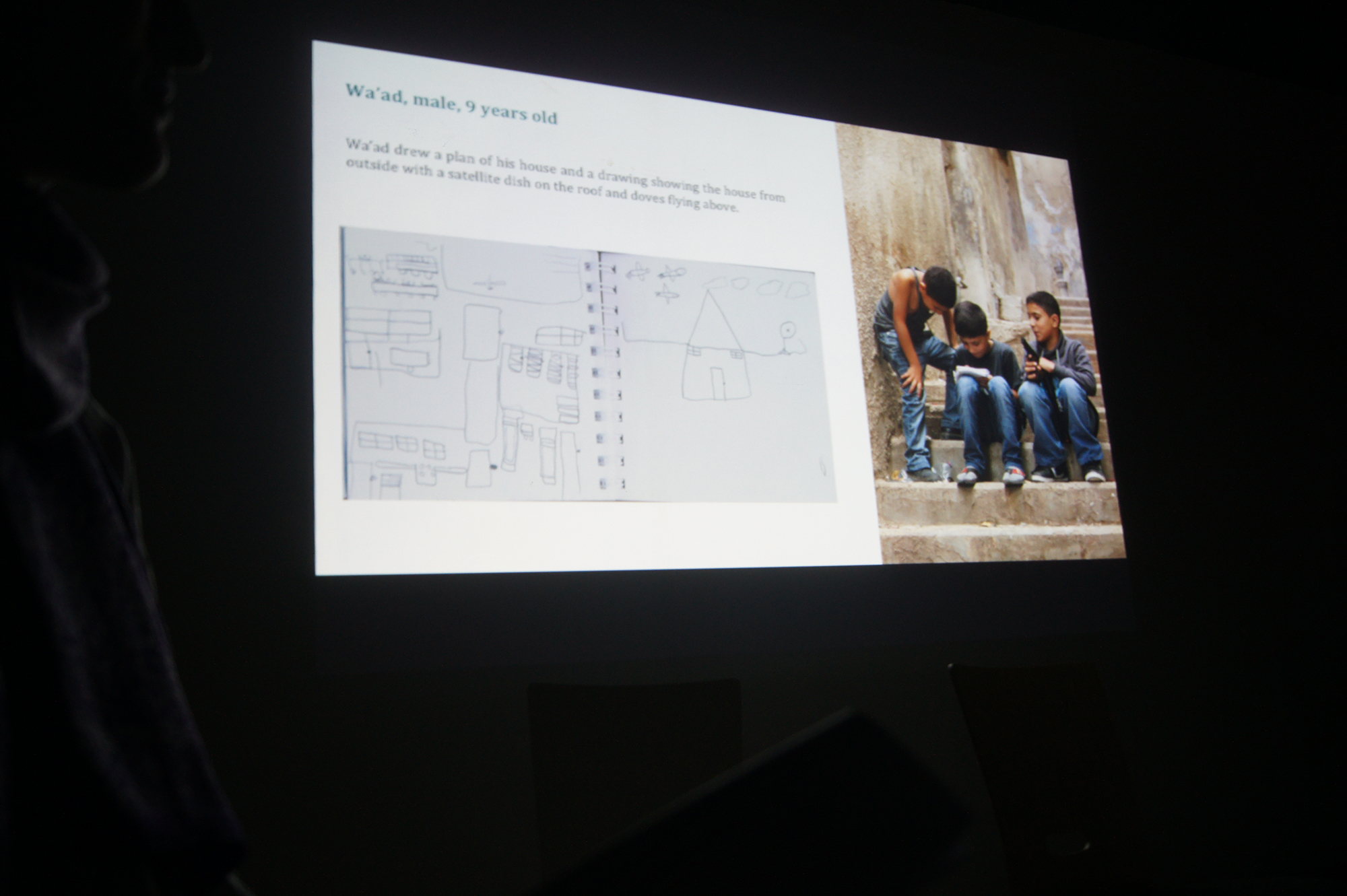
© Liyan Aljabi
In countries and cultures around the world, informal settlements, low serviced neighborhoods and refugee camps face problems resulting from inadequate infrastructure, public services, and deficiencies in their spatial organisation.
They also face a choice between differing strategies for regeneration and upgrading which negotiate between the need for renewal versus the attachment to spaces that have been lived in and developed over generations. In respecting those social and spatial cultures, and in arguing for proposals that are sensitive towards these issues, mapping strategies play a pivotal role.
In collaboration with
Christoph Lueder (Kingston University, London)
Alexandru Malaescu (Kingston University, London)
Uhoud Kamal (German Jordanian University, Amman)
Samar Dudin (Ruwwad, Amman)
Ruwwad’s volunteers and youth.
Community partner: Ruwwad | رواد التنمية
Sponsors:
Heinrich Böll Stiftung Middle East
Aramex
Academic partner: German Jordanian University




